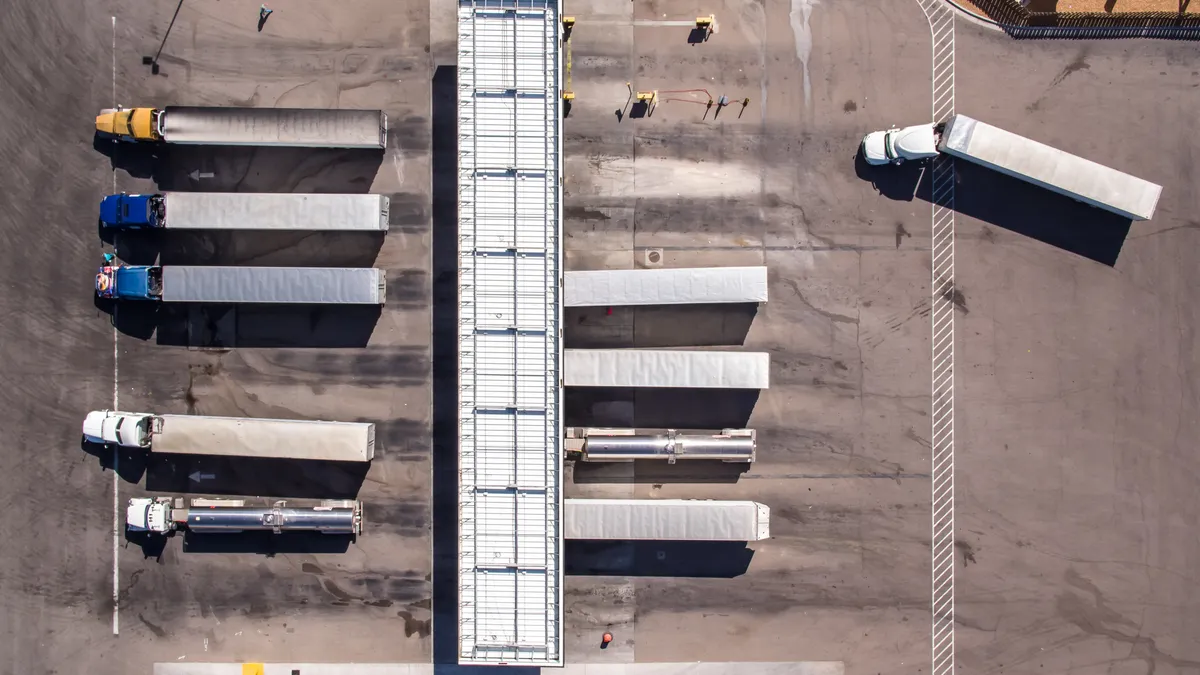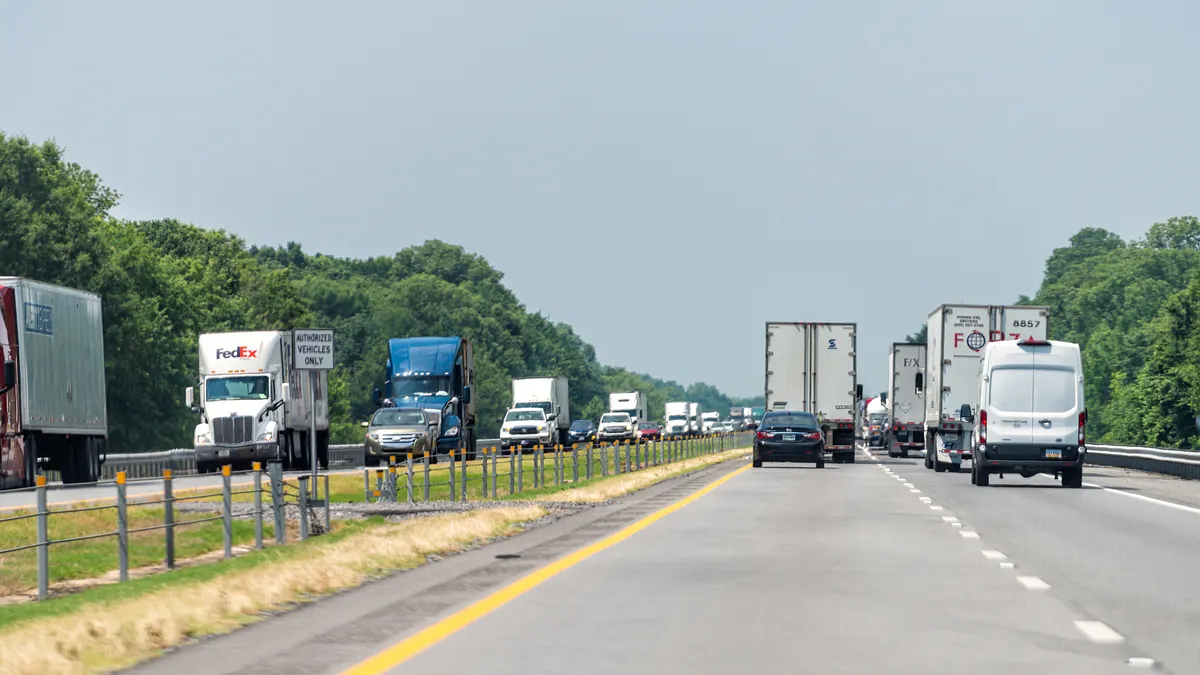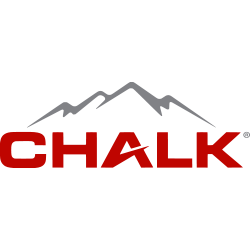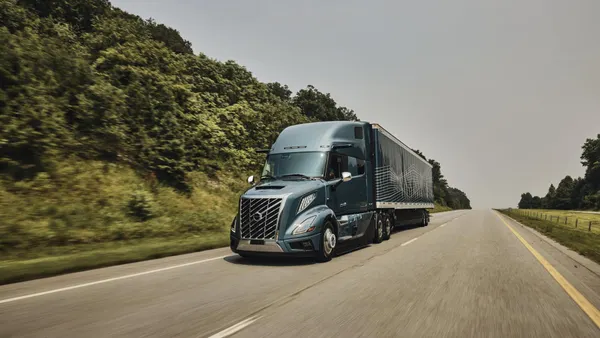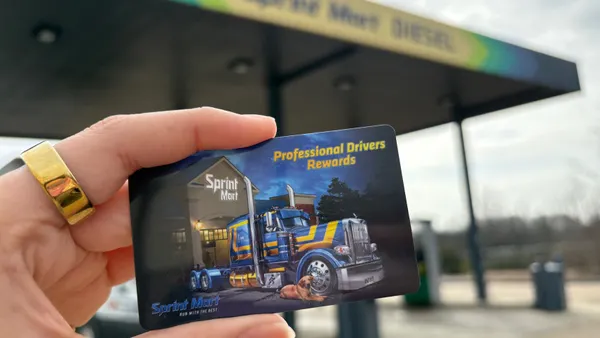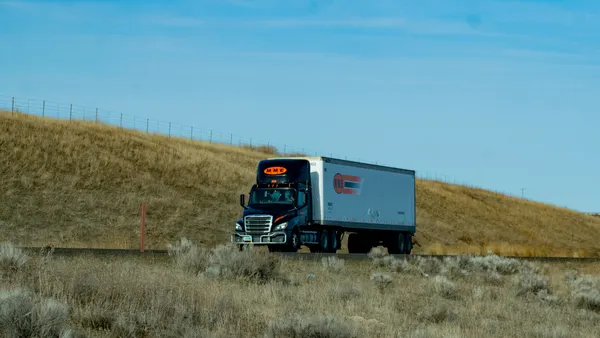Trucking business owners continue to navigate complex layers of the economy, but favorable freight exists.
In a call with Trucking Dive, Trucking Solutions Group members projected steady volumes for the rest of the year. That's even as tariffs have slowed auto import volumes, but the market will eventually normalize, according to Henry Albert, owner and president of Albert Transport.
The group on Sept. 9 weighed in on market outlooks, with several group members noting parts of the economy are still significantly lagging.
Owner-operator Joel Boelman suggested the freight cycle has yet to bottom out, though. He said he's seen miles worth of coal cars and frack sand cars parked on rails in storage, and until those items start moving, he doesn't see things picking up.
"It's going to take time to dig out of the economic hole we were in," Boelman said.
A surge in freight demand during the COVID-19 boom has plunged, leaving the industry in a softer market for the last three years, according to ArcBest CEO Judy McReynolds.
While the slower market has helped shippers secure better pricing, carriers such as ABF Freight and Knight-Swift Transportation Holdings have advanced some higher rates recently, even as volumes struggle. FedEx Freight also announced average rate increases of 5.9% and 6.9%, effective Jan. 5.
Analysts stress that demand in the freight market will spur change, but they don’t expect a dramatic turnaround anytime soon.
"The truckload market, while close to equilibrium, continues to experience some excess capacity," said Spencer Frazier, EVP of sales and marketing at J.B. Hunt Transport Services, during a July 15 earnings call.
Other carriers also project attrition to continue. Owner-operator Mark Heggestad, another Trucking Solutions Group member, suggested that RV sales and the farming industry may serve as meaningful indicators of the economy, adding that consumer spending needs time to recover.
In the RV space, Camping World has been consolidating locations, a move that CFO Thomas Kirn attributed to underperformance. The company detailed in its Q2 earnings call how it consolidated 16 locations and reduced headcount by 1,000 people since January. Still, new vehicle sales increased by nearly 21% for the quarter to almost 26,700 units.
Meanwhile, agricultural production has shown signs of slipping throughout 2025 on a month-to-month basis, while livestock production has made some gains, according to the U.S. Agriculture Department's National Agricultural Statistics Service.
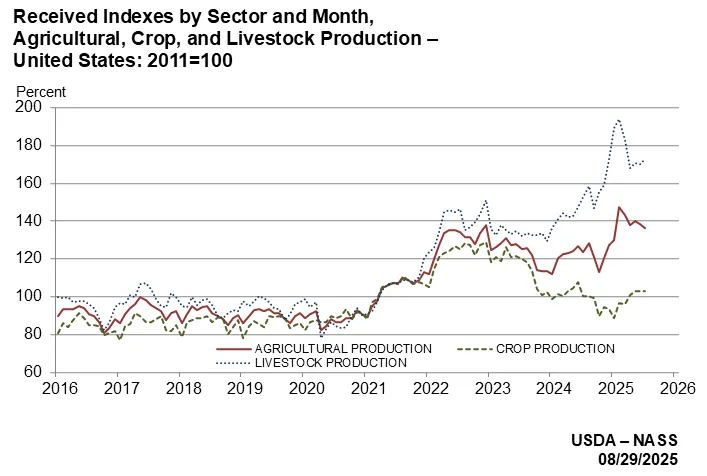
In July, wheat, dairy and soybean suffered year-over-year hits, but meat made a whopping 21% gain, according to a recent report released by the National Agricultural Statistics Service documenting prices. Poultry and egg prices were up 13% YoY, and various vegetable price gains offset price declines in celery and cucumbers, the report also said.
Some truckers who use load boards say profitable loads exist but opportunities at the moment are slim.
"This is not a market to be going to ask for more money," Heggestad said. Instead, he recommended trucking businesses aiming to maintain their freight activity continue to negotiate and highlight what they can offer to customers, such as on-time delivery and no claims or damages.




